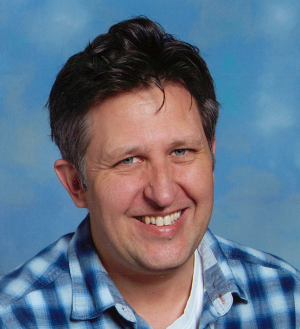EduTwitter – How we can clean up the ‘battleground’

EduTwitter has become a whirlwind of arguments, but it doesn’t have to be that way, says Tim Taylor…

- by Tim Taylor

Log into EduTwitter over half-term, scroll down a couple of pages, and you can almost guarantee you’ll find a thread of teachers and educationalists hurling insults, arguing over semantics, or using screengrabs to start a pile on: “Have you seen this – for pity’s sake.”
But what if it wasn’t like that? What if EduTwitter rather than a battleground was a forum, a place for respectful and thoughtful debate, a medium for sharing and talking about ideas and practice? What would that be like?
Well, scroll on another page or two and you’ll find it.
Prog vs Trad
EduTwitter is not one thing, it’s many things to many people, and it’s evolving. I’ve been on Twitter for nine years. Back when I joined it was all about Progs v Trads – two tribes at war, fighting over the future of education.
This was a battle (so I was told) that had been ragging for two thousand years (give or take) and was now something you had to take sides over – you were either a Prog or a Trad, there was no in-between.
I was a Prog apparently, and that meant an enemy of promise, one of the blob, a phonics-denier, a lover of Brain Gym. Funny, I’d never felt like any of those things.
The situation has changed in recent times, there are still occasional flare ups over Original Sin or videos of children reciting poetry, but these are isolated instances, like rockets landing on Orwell’s Londoners in 1984.
Some of the fight has gone out of it, along with the energy. Most of the combatants from nine years ago have muted or blocked one another or moved on. The time is ripe for change.
Us and them
What might that change look like? Well, here’s one thing: let’s stop calling it a battleground. Most teachers (I’m going to stick my neck out here and say, 95 per cent) are neither Trads nor Progs.
They might lean more towards one end of the divide than the other, but the vast majority are practical, hardworking, contentious professionals with an overwhelming belief in doing right by children.
They don’t want to be at war with a ‘side’, they want to find out what works and do more of it.
History of modern education
Since the 1960s, education has seen a series of ideological cycles, each one lasting about a decade, rejecting the one before and framing its proponents as the enemies of children.
This process has damaged progress in education and split the profession to the benefit of politicians. We have an opportunity now not to repeat the mistakes of the past.
There are signs we are coming to the end of one cycle and are at the beginning of another. Much of the energy of the current cycle – the knowledge-rich curriculum, direct-instruction, and strict behaviour policies – is running out.
This is not because these subjects aren’t important, they are, it’s because they’ve become orthodoxy (a sure sign something has become orthodoxy is when Ofsted start mandating it), and as a consequence, boring.
At the moment we are in a lull, a period of calm. Who knows how long it will last, maybe a few years, but eventually the guns will fire up and the war will begin all over again.
But it doesn’t have to be this way, education doesn’t have to be a battlefield, we can listen to another, recognise the advances that have been made over the last cycle, and build on them.
In fact, let’s look back over previous cycles and build on them too. I’m a huge fan of Dorothy Heathcote and John Holt.
We don’t have to tear down the last generation to build the next. We’re not at war with either Oceania or Eastasia, whatever the propagandists tell us.
Let’s recognise progress has been made, while acknowledging the last cycle has not solved all the problems of education. In fact, like any approach, it has thrown up new challenges, new unintended consequences for us to tackle.
I’d say the next cycle needs to look at student engagement, imagination, utilising stories, active learning (embodied cognition), and solution-focused approaches to behaviour support.
You might disagree, and that’s fine – let’s talk about it on Twitter.
Tim Taylor is a freelance teacher, and author of A Beginner’s Guide to Mantle of the Expert. Follow Tim on Twitter @imagineinquiry.











